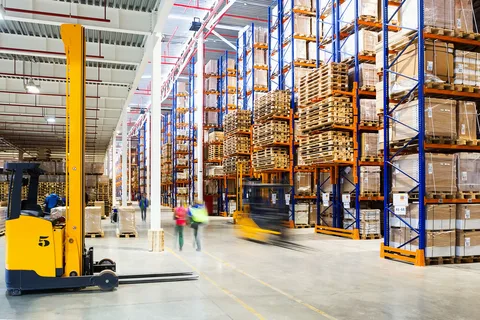When it comes to international shipping, there are a lot of important factors to consider. From choosing the right mode of transportation to understanding the various regulations and requirements, it can be quite overwhelming. That’s why we have created this guide to help you navigate through the customs process when shipping by air freight or ocean freight. Whether you are a first-time shipper or an experienced importer/exporter, this blog post will provide you with the essential information you need to know before sending your goods across borders. So, let’s dive into “Customs 101” and ensure a smooth shipping experience!
Understanding the Difference between Air Freight and Ocean Freight
Navigating the world of international shipping starts with knowing the difference between Air Freight and Ocean Freight. Each method has its own perks and downsides. If you’re shipping goods that are time-sensitive or lightweight, Air Freight is your best bet as it’s quicker, but keep in mind, it’s also pricier. On the flip side, Ocean Freight, while slower, is a more economical choice, perfect for heavy or large-volume shipments. Essentially, choosing the right method boils down to balancing the specific needs of your shipment with your budget.
Unpacking the Key Terminologies Used in Customs
The world of customs can feel like a maze of jargon, but knowing a few key terms can help. Here are some you should be aware of: Customs Duty is a tax levied on goods crossing international borders. A Bill of Lading is a legally binding contract between a shipper and a carrier that provides details about the shipment. A Customs Broker is a licensed professional who acts as a representative for shippers or receivers in dealings with customs authorities. Familiarizing yourself with these terminologies can demystify the customs process.
How to Prepare Your Shipping Documents Correctly
Accuracy and attention to detail are critical when preparing your shipping documents. This typically includes a commercial invoice, packing list, and a meticulously filled out Bill of Lading. Each document must accurately describe your goods and provide the lionext. More importantly, make sure all details are consistent across your documents. Errors can easily lead to delays, extra charges, or even the seizure of your shipment. So, cross-check your documents and avoid any missteps in the customs clearance process.
Understanding Customs Duties and Taxes
Grasping the concept of customs duties and taxes is vital for a successful international shipping experience. These charges are not optional and are calculated based on several variables. The value of your goods, their categorization under the Harmonized System (HS) code, and the destination country’s tax laws all play a role in determining these costs. Therefore, it’s wise to always include these expenses in your shipping budget to sidestep any unexpected financial burdens or hurdles in the clearance process.
The Role of a Customs Broker in Facilitating Your Shipment
Navigating the labyrinth of international shipping regulations can be made simpler with the help of a customs broker. These professionals are fluent in the language of customs, adept at preparing the necessary paperwork, and can guide your shipment through the customs process with ease. While engaging a broker comes with a cost, their expertise can be a game-changer, saving you time and sparing you from costly missteps. So, when faced with the intricate web of customs, a broker might just be your lifeline.
How to Handle Customs Inspections
Getting through customs inspections without any hiccups starts with preparedness. Having all additional information that may be requested by customs officers at your fingertips can expedite the process. Also, ensure your goods are packed correctly and labeled clearly to avoid any unnecessary delays or penalties. Remember, non-adherence to inspection requirements can lead to serious consequences such as fines, seizure of your goods, or even legal ramifications. Be proactive, prepared, and compliant to navigate this stage of shipping successfully.
The Consequences of Non-Compliance with Customs Regulations
Don’t underestimate the fallout of skirting customs regulations. Bumps in the road could quickly escalate to roadblocks, including shipment delays and hefty fines. But the repercussions don’t stop there. Your goods could be confiscated, and you could find yourself grappling with legal penalties. What’s worse, habitual offenses may result in a complete shutdown of your future shipping activities. It’s simple, familiarize yourself with the evolving customs landscape, handle your documents with care, and consider looping in a customs broker. Better safe than sorry, right?
Tips for a Smooth Customs Clearance Process
When it comes to seamless customs clearance, precision and preparedness are key. Carefully preparing your shipping documents ensures no detail is overlooked, helping to avert unnecessary hitches. Accounting for all duties and taxes in your budget helps stave off unwelcome financial surprises. Adhering to customs rules and regulations helps you avoid penalties and maintain a smooth shipping process. If the process seems overwhelming, consider engaging a professional customs broker. And remember, well-packaged and clearly labeled goods can simplify potential customs inspections. Each step taken meticulously brings you closer to a successful shipping experience.

